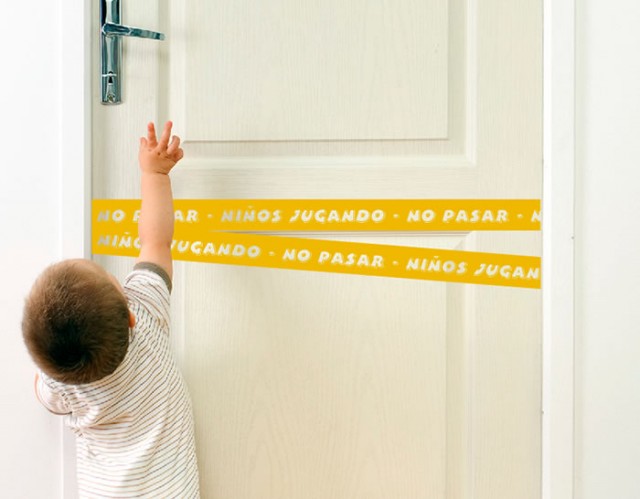“This sounds cliché, but I am genuinely moved and inspired by the families of my students–the foster sister who makes sure the two siblings who attend our school are present for every single one of their combined eight teletherapy sessions per week; the parents who greet us at the start of each session with a story about how they tried what we suggested or did the activity we recommended… the parents who use their breaks from work to make sure their children show up for teletherapy; the parents who are juggling work, remote learning (often for more than one child), and, unfortunately, illness and loss; the parents whose eagerness to help their children learn and perform is so evident; the love that the parents have for their children and that the children have for them.” – Workforce Survey Participant
The New York Early Childhood Professional Development Institute, in partnership with the Bank Street College of Education, recently completed a survey to understand the impact of the COVID-19 pandemic on New York’s early childhood workforce. The survey included early childhood program leaders, teachers, and family child care providers and over 3,000 individuals who are members of the state’s Aspire Registry responded. The survey sought to provide a descriptive snapshot of the workforce during the pandemic in order to stimulate dialogue to help the field navigate this crisis.
One of the themes that emerged from the survey related to educators’ experiences engaging families during the pandemic. Professional organizations such as the National Association for the Education of Young Children (2009, 2019) and our public agencies such as The New York City Department of Education’s Division of Early Childhood Education (DECE)’s Family and Community Empowerment (FACE) recognize the central role of family engagement and empowerment in children’s success. The pandemic offered new opportunities to build stronger relationships with families and to provide meaningful resources that support children’s development and the whole family’s well-being. As reflected in the quote at the beginning of this post, early childhood educators used a family empowerment mindset to develop relationships that build on families’ strengths.
During this unprecedented time, families encountered issues that were difficult for us as educators to address. Educators were stretched to connect with families and to identify appropriate resources in support of their new needs. Previously, we saw families at pick-up and drop-off. We established tools to maintain open communication with our families during the school year. Social distancing challenged us to find new tools and to identify new ways to reach families. As one survey respondent commented when discussing the challenges of this time:
“Learning what to do when a family doesn’t respond to texts/calls/emails. Personally, I don’t want to push them to engage in our classroom curriculum if they don’t want to. That’s probably not their highest priority right now and I understand that. But I want to be able to keep an open dialogue so that I know if the family needs help to be able to help them or connect them to resources.”
Family engagement and empowerment have not only been hindered by the great losses and trauma experienced during the pandemic but also by the inequities the pandemic has highlighted. Survey respondents expressed concern about finding resources in the home languages of families and how to best collaborate with families. One participant voiced some of this frustration saying “Some of our families do not have the simple supplies at home (no crayons, paper, puzzles etc.) and that is one of our biggest challenges. We try to be creative and help them use household items. Our families are overwhelmed (stress, money issues, illness) and we talk to them and help in any way we can.”
The challenges of engaging and empowering families during the pandemic highlight how crucial it is that we implement an approach that takes into consideration the well-being and perspectives of the whole family. More than ever we need open, collaborative conversations with families. While teaching during the pandemic, I found strong partnerships with families necessary. Often that meant using technology I had never used before, in combination with previously used strategies. For example, our teaching team had video calls with families instead of our regular in-person conferences. We also provided times that we could meet virtually or by phone with individual children and families outside of our large video class meeting. These individual meetings gave great insight into family dynamics. We learned about losses, accomplishments, shifts in goals, along with receiving feedback on how children reacted to the lessons we taught. We depended greatly on the information families shared about what they were experiencing at home when planning lesson times and content. This information was also essential when selecting resources that would be most relevant and helpful for the children and families in our program.
As we plan for the future, family engagement and empowerment will be essential. Resources to support the workforce in this collaboration are important.
- QUALITYstarsNY recently developed a 3-part webinar series to help programs safely welcome back children and families. The third webinar in the series PART 3: “TRANSITIONING TO THE NEW NORMAL” includes a sample “Welcome Back” packet for families. More information on this third webinar and the entire series can be found at https://qualitystarsny.org/reopening.php#toolkits
- The Leadership Initiative is hosting a webinar on Working with Families on August 12 from 2:00-3:00 as part of its Survive to Thrive: A Director’s Guide for Leading an Early Childhood Program series. The webinar will discuss family communication, family engagement, and more. Register here
The COVID-19 pandemic has underscored the importance of collaborative family engagement and empowerment. This experience has, for many educators, deepened the relationships we have with families, resulting in a richer, more nuanced understanding of family engagement and empowerment. The pandemic has meant the use of new tools when collaborating. It has brought to the forefront the importance of being allies with families.
What strengths/challenges in family engagement and empowerment have you encountered during the COVID-19 pandemic?
Read the full report: New York Early Care and Education Survey: Understanding the Impact of COVID-19 on New York Early Childhood System
Erica Yardy is a Research Associate with the New York City Early Childhood Research Network, a project of the New York Early Childhood Professional Institute, and is a preschool teacher in White Plains, New York. She received her Master’s in Early Childhood Special Education from the University of Illinois at Urbana Champaign and has previously taught in New York City and Barbados.




I work in a private preschool, so parents are paying expensive tuition. One of the biggest challenges I faced during COVID-19 was parents wanting more and more from the school. No matter how many hours teachers streamed live lessons, recorded read-aloud, small group sessions, and private talk sessions, it was never enough. Teachers overworked to put together and send weekly packages with craft materials and activities to accommodate children who could not join live sessions. Frankly, many families felt like school mistreated them for not providing enough engagement for their children. As a teacher, I was heartbroken to see how parents always complained and demanded their tuition back, despite all our efforts.
There were a handful of parents who were grateful for our efforts. And it strengthened family and school relationships. And they helped set up Zoom play date for older children who did not take naps in the afternoon. They volunteered to be part of family engagement classes via Zoom. It was a night and day difference between parents who accepted the Covid-19 situation and those who denied the reality of limitation via zoom.
During remote teaching, I used Google Survey, Bloomz app, messages, emails, and letters to communicate with families. We tried to figure out what art supplies families owned to plan our lessons better on the survey. We sent art supply boxes to some families to help them be part of the remote class better. One of the best forms of communication was one-on-one sessions via zoom. My three-year-old students often could not sit through 15-minute lessons, so I talked with the parents instead. They seemed to enjoy talking with me more than the children because they missed adult engagements. Face-to-Face time strengthened parent and teacher relationships.
Pen-Pal is a beautiful family engagement activity. Families who wanted to participate gave their mailing addresses within the school community and then wrote each other’s letters. It was an excellent tool to practice writing for older students. And everyone could draw and share their artwork with their friends. Children were excited to get my mail, and parents used to send me their smiling faces via emails. It was a tangible way to show I cared about my students.
A scavenger hunt is another fun family engagement activity. For many families, the pandemic forced them to spend more time with their children for the first time. It was hard for some parents to keep their children busy. As a result, we suggested a scavenger hunt for the parents to do with their children. We made a scavenger hunt for colors, shapes, letters, and animals. It was a fun activity for families because they can go on a scavenger hunt anywhere without preparation.